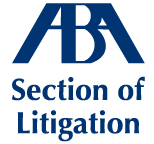Vincenti & Vincenti, P.C. attorneys Paul Vincenti and Elyse Pillitteri are hosting the below American Bar Association, Section of Litigation Roundtable presented by the Commercial and Business Litigation Committee, discussing the controversial topic of “conspiracy theory” jurisdiction on July 18 at Noon EST. Benjamin Robbins, senior attorney at The New England Legal Foundation, is their co-panelist. Please join if you can!
Defendants in Wonderland:
Due Process and Other Concerns Affecting “Conspiracy Theory” Jurisdiction
ABA Section of Litigation
Commercial and Business Litigation Committee
Wednesday, July 18 2018
9:00 – 10:00 AM PT | 10:00 – 11:00 AM MT | 11:00 AM – 12:00 PM CT | 12:00 – 1:00 PM ET
Program Description:
The “conspiracy theory” of personal jurisdiction, where non-resident defendants can be dragged into a foreign jurisdiction based on actions undertaken in the forum state by defendants’ alleged co-conspirators, is currently recognized in many states. Yet several jurists and scholars question the constitutionality of the theory, particularly in light of the U.S. Supreme Court’s decision in Walden v. Fiore, 134 S. Ct. 1115 (2014). Conferring personal jurisdiction based on a third party’s actions and a plaintiff’s allegations of conspiratorial relations, as opposed to proven or undisputed facts establishing a defendant’s direct and purposeful availment of the forum’s benefits, raise Due Process concerns. Recent cases, including Reid v. Siniscalchi, 2018 WL 620475 (Del. Ch. Jan. 30, 2018) and Fitch Ratings, Inc. v. First Tennessee Bank, N.A., 489 S.W.3d 369 (Tenn. 2015), cert. denied sub nom., Fitch Ratings, Inc. v. First Community Bank, N.A.136 S. Ct. 2511 (2016), speak to the inherent problems with conspiracy theory jurisdiction and highlight the susceptibility of the theory to abuse and forum shopping by plaintiffs willing to manufacture a conspiracy solely to avoid litigating in unfavorable jurisdictions. In this roundtable, practitioners involved in Walden, Reid and Fitch will discuss whether the conspiracy theory of personal jurisdiction should be struck down as violative of Due Process. To the extent the theory remains viable, the panel will address the pleading and evidentiary standards that are or should be required of plaintiffs to establish personal jurisdiction based on alleged conspiratorial acts.
Panelists:
Paul J. Vincenti, Elyse C. Pillitteri and Benjamin Robbins.
Paul J. Vincenti and Elyse C. Pillitteri are with Vincenti & Vincenti, P.C., in New York, NY. Paul and Elyse’s law firm represented the foreign entity defendants in Reid v. Siniscalchi.
Benjamin Robbins is a Senior Staff Attorney at the New England Legal Foundation (NELF). NELF submitted amicus briefs to the U.S. Supreme Court in Walden v. Fiore and Fitch Ratings, Inc. v. First Community Bank, N.A.

